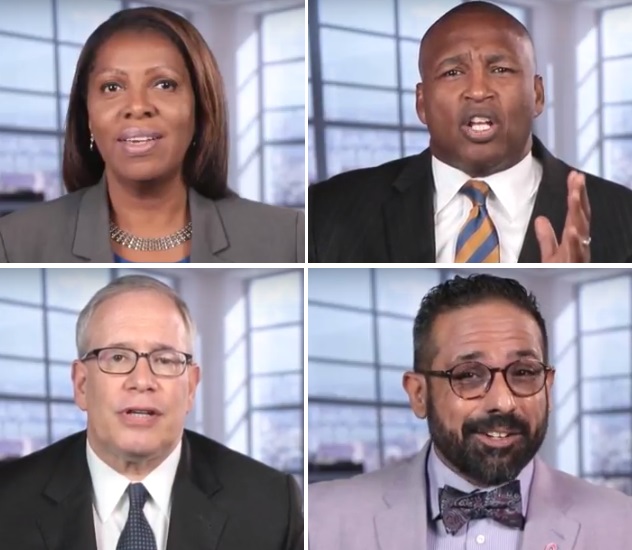
NYCCFB
Clockwise from top left: Public Advocate Letitia James (D), Republican comptroller nominee Michel Faulkner, Republican public advocate hopeful JC Polanco and Comptroller Scott Stringer (D).
It is possible that as few as one in every 275 city voters tuned in to this week’s televised debates for the offices of public advocate and comptroller. Four years ago, that was the share—a mere 16,000 people in a city of 4.3 million active registered voters—estimated to have watched the general election debate for comptroller.
Given the lack of attention this year to the races for the city’s No. 2 and 3 positions, it is hard to believe that there was a larger viewership for Monday’s public advocate debate featuring incumbent Democrat Letitia James and Republican challenger JC Polanco or Tuesday’s comptroller debate between incumbent Democrat Scott Stringer and Republican challenger Michel Faulkner.
Those who did turn it on saw exactly what a debate is supposed to show: the differences in style and, as much as can be expected in an hour of television, substance on which voters can make a pretty informed choice for two offices that are important in their own right (the public advocate takes over if the mayor vacates office and the comptroller oversees one of the largest budgets and one of the biggest pension systems in the country) and whose occupants, then and now, have been seen as likely candidates for bigger and better things.
Ben Max of Gotham Gazette and I spoke with WNYC’s Brigid Bergin, who served as a panelist on Tuesday night, about the themes and surprises of both debates, and looked ahead at the only debate remaining on the schedule that is likely to occur: the final mayoral matchup on November 1.








